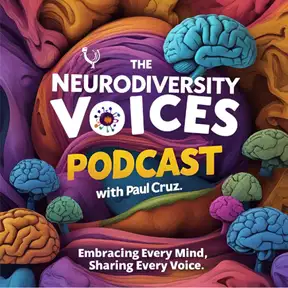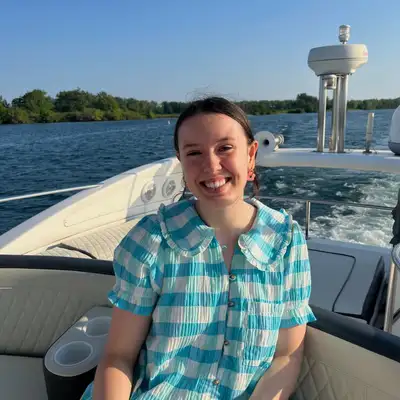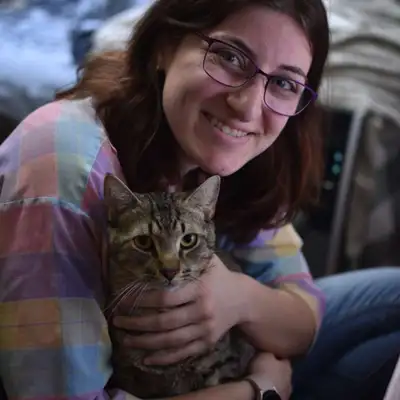Student leaders from the Neurodiversity Students Association (NDSA) at Toronto Metropolitan University — Jenna Ignaczak, Malka Finkelstein, and Maddie Sardone — discuss what it truly means to be a neurodivergent student in post-secondary education today.
Together, they share stories of inclusion, moments of isolation, experiences with ableism, and insights into how universities can better support neurodivergent students. The conversation dives into policy challenges, mental health, masking, equity vs. equality, and the importance of community.
Whether you’re a student, educator, ally, or policymaker, this episode will leave you informed, inspired, and motivated to advocate for a more inclusive future in higher education.
Key Topics Covered
- Defining neurodiversity from personal perspectives
- The impact of late diagnoses and discovering community
- How masking affects academic performance and self-identity
- Barriers within accommodation systems and institutional policies (e.g., Policy 60)
- Positive experiences with professors and allies
- Real-life challenges of navigating exams, memory, overstimulation, and participation
- Suggestions for a neurodivergent-friendly campus
- What Gen Z is doing to shift the narrative around neurodiversity
- A call to action for university leaders across Canada
Featured Guests:
Jenna Ignaczak
Malka Finkelstein
Maddie Sardone
Neurodiversity Students Association, Toronto Metropolitan University
Instagram: @tmu_ndsa
Quotes to Remember:
“It’s not about equality, it’s about equity.” – Malka
“We don’t know what we don’t know. Ask students what they need.” – Jenna
“It’s easier to get rid of us than support us. That’s the problem.” – Maddie
Connect with Us:
“We don’t know what we don’t know. Ask students what they need.” – Jenna
“It’s easier to get rid of us than support us. That’s the problem.” – Maddie
Connect with Us:
- Learn more about Neurodiversity Voices Podcast: www.neurodiversityvoices.com
✨ If this episode resonated with you, please subscribe, rate, and share The Neurodiversity Voices Podcast with your community. Together, we can keep amplifying diverse voices and celebrating the beauty of different minds.
Instagram, Facebook Page, YouTube, Substack: @neurodiversityvoicespodcast
LinkedIn: https://www.linkedin.com/company/neurodiversityvoicespodcast
Transistor.fm: https://theneurodiversityvoicespodcast.transistor.fm/
Bluesky: https://bsky.app/profile/tnvp.bsky.social
Be Our Next Guest on The Neurodiversity Voices Podcast!
Do you have a story, insight, or experience that could inspire and empower the neurodiverse community? We’re looking for passionate voices—self-advocates, professionals, educators, parents, and allies—who want to share their journey and spark meaningful conversations.
✨ If you’re ready to highlight your perspective and contribute to a platform that celebrates neurodiversity, we’d love to hear from you!
👉 Apply now to be a guest: https://www.neurodiversityvoices.com/be-our-podcast-guest
Let’s amplify neurodiverse voices—together. 💜
Telos: A Neurodiversity Conversation Podcast: https://anchor.fm/s/fc565318/podcast/rss
Chapters
00:00 Introduction to Neurodiversity in Education
04:21 Personal Definitions of Neurodiversity
06:00 Experiences of Support and Understanding
08:24 Challenges Faced by Neurodivergent Students
10:30 Evaluating University Support Systems
13:50 Imagining an Inclusive Future
16:57 Creating a Neurodivergent-Friendly Campus
20:48 Being an Ally to Neurodivergent Peers
23:40 The Role of Educators in Inclusivity
24:10 Creating Inclusive Spaces in Education
28:38 Navigating Accommodations and Disclosure
32:18 Challenges of Current Assessment Methods
37:20 The Pressure to Mask Neurodivergence
41:47 Gen Z's Impact on Neurodiversity
42:38 Hope for Future Education and Accessibility
45:12 Messages for University Administrators
Disclaimer:
The content provided in this podcast is not intended to be a substitute for professional medical advice, diagnosis, or treatment. Always seek the advice of your physician or other qualified health provider with any questions you may have regarding a medical condition. Never disregard professional medical advice or delay seeking it because of something you have heard on this podcast.




